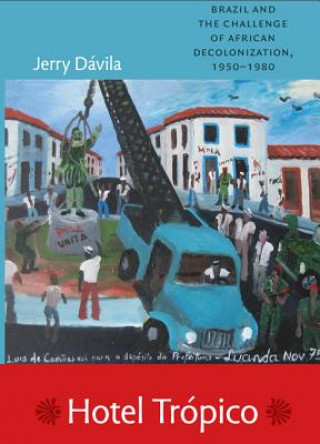
Kézbesítés
Vásárlási tanácsadó





Nem vált be? Semmi gond! Nálunk 30 napon belül visszaküldheti
 Ajándékutalvány
bármilyen értékben
Ajándékutalvány
bármilyen értékben
Ajándékutalvánnyal nem nyúlhat mellé. A megajándékozott az ajándékutalványért bármit választhat kínálatunkból.
Hotel Tropico
 Angol
Angol
 96 b
96 b
30 nap a termék visszaküldésére
Ezt is ajánljuk


In the wake of African decolonization, Brazil attempted to forge connections with newly independent nations. In the early 1960s, it launched an effort to establish diplomatic ties with African countries; in the 1970s, it undertook trade campaigns to open African markets to Brazilian technology. Hotel Tropico reveals the perceptions, particularly regarding race, of the diplomats and intellectuals who travelled to Africa on Brazil's behalf. Jerry Davila analyzes how their actions were shaped by ideas of Brazil as an emerging world power, ready to expand its sphere of influence; of Africa as the natural place to assert that influence, given its historical (slave-trade) ties to Brazil; and of twentieth-century Brazil as a "racial democracy," a uniquely harmonious mix of races and cultures. While the experiences of Brazilian policymakers and diplomats in Africa reflected the logic of racial democracy, they also exposed ruptures in such an interpretation of Brazilian identity. Did Brazil share a "lusotropical" identity with Portugal and its African colonies, so that it was bound to support Portuguese colonialism at the expense of Brazil's ties with African nations? Or was Brazil a country of "Africans of every colour," compelled to support decolonization in its role as a natural leader in the South Atlantic? Drawing on interviews with retired Brazilian diplomats and intellectuals, Davila shows the Brazilian belief in racial democracy to be about not only race but also Portuguese ethnicity.
Információ a könyvről
 Angol
Angol




 Hogyan vásároljunk
Hogyan vásároljunk


























